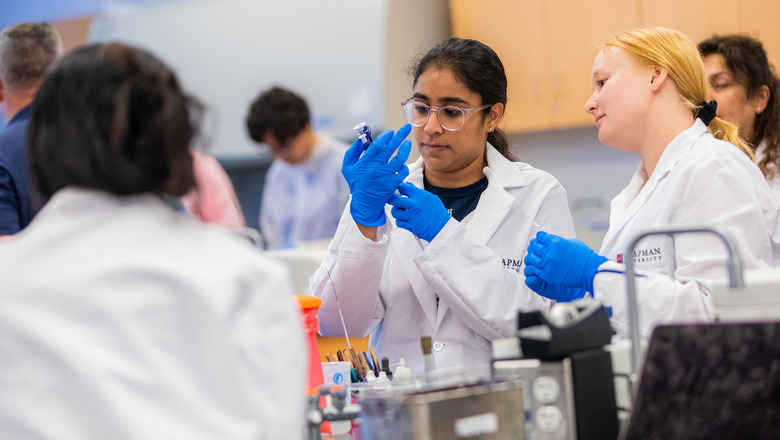 Occupational therapists are responsible for people who face physical, cognitive, or
mental health challenges to participate more fully in their lives. OTs work in various
settings and are well-trained to work with diverse age groups and work collaboratively
and holistically with other health practitioners.
Occupational therapists are responsible for people who face physical, cognitive, or
mental health challenges to participate more fully in their lives. OTs work in various
settings and are well-trained to work with diverse age groups and work collaboratively
and holistically with other health practitioners.
A master’s degree is required to practice. However, OTDs (entry-level doctorates) are becoming increasingly more common as a requirement to practice occupational therapy.
A GPA of 3.5 or better is best for a competitive applicant. Not all programs require the GRE, but you should check the programs you apply to.
In addition, you should cultivate a variety of experiences that make you a strong candidate:
- Exposure to occupational therapy is a must. First, you want to make sure this is the right career for you. Second, you should
be able to answer a few questions:
- What setting do you want to practice in?
- What population do you hope to work with?
- Ultimately, why do you want to be an occupational therapist?
- Community service and involvement
- Research, extracurricular, and work/life experiences
All of these things demonstrate your readiness and motivation to pursue a career in occupational therapy.
Activities and extracurriculars
Get involved early in these and ramp up to have a well rounded resume by the time you apply. However, your first job is your academics. You need to maintain a strong academic foundation to be competitive.
- Shadowing. You can gain experience and learn about the field in a number of ways:
- Shadowing an occupational therapist in various settings: schools, hospitals, private practice, community centers, and even wellness resorts.
- What do they do that appeals to you?
- Volunteering in free clinics or hospitals—learn about the field.
- Community service. Give of yourself to your community. Shelters, food banks, community resource centers, after school programs. Preferably not clinically related, although in some cases there may be some crossover.
- Research. Chapman offers many opportunities for students to get involved in research as an undergrad.
- Extracurriculars. Involvement in things you’re interested in, including clubs; does not need to be clinically related. One particularly relevant option is the Pre-Physical and Occupational Therapy Club.
Academics/prerequisites
These are the general courses you should take. There may be some programs that have additional or fewer requirements. Always check with the programs to confirm.
|
Required subjects |
Course options |
|---|---|
|
Biology (1 semester with lab) |
BIOL 204 or BIOL 205 or 208 Biology AP credit generally not accepted |
|
Human Anatomy (1 semester with lab) |
HSCI/BIOL 210 |
|
Human Physiology (1 semester with lab) |
HSCI 365 |
|
Medical Terminology (1 semester) |
HSCI 105 |
|
Abnormal Psychology (1 semester) |
PSY 328 |
|
Developmental Psychology (Life Span Development - 1 semester) |
PSY 327 |
|
Sociology (1 semester) |
SOC 101 |
|
Statistics (1 semester) |
Most stats courses; options include MATH 203, PSYC 203, MATH 303 (or AP credit) |
|
English Composition (2 semesters) |
ENG 103 and one other composition-based course |
